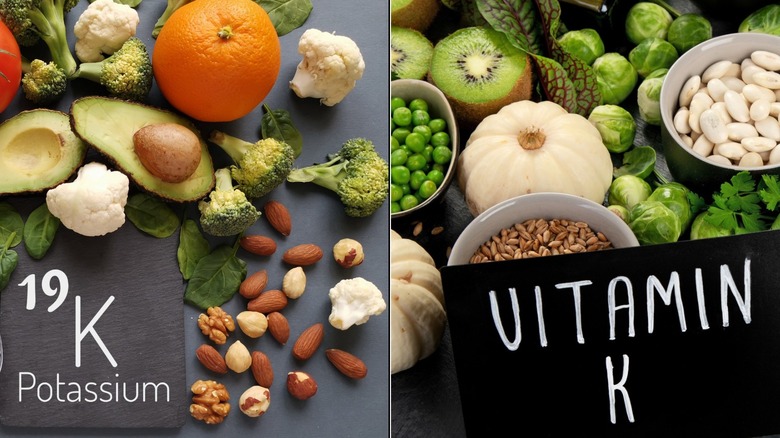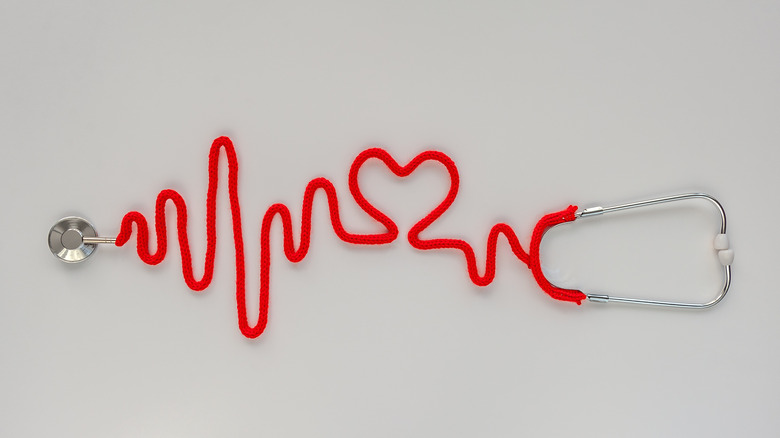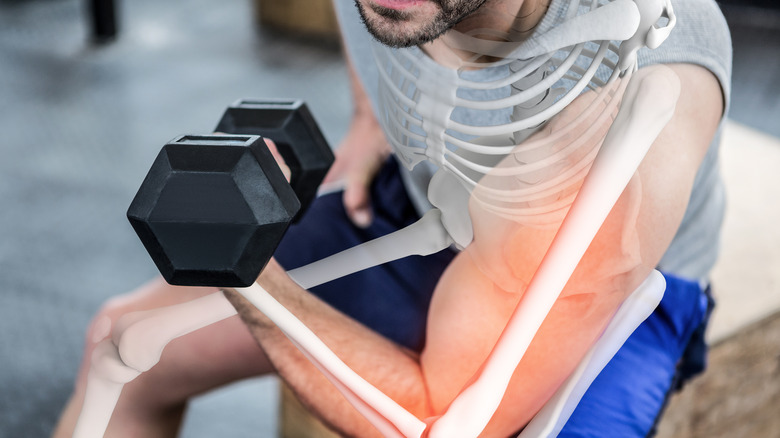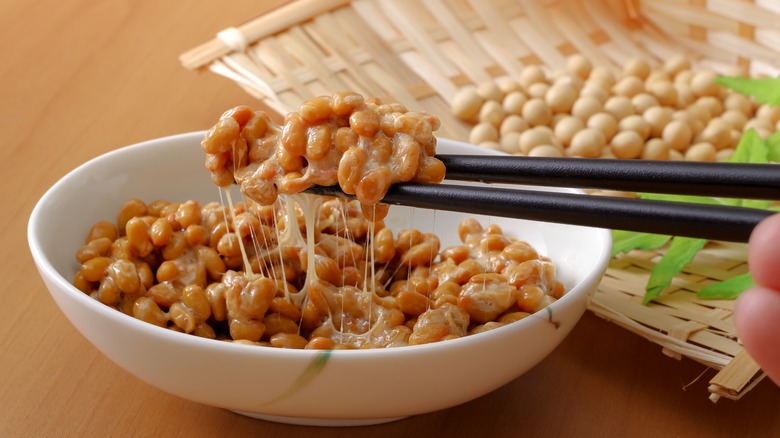Are Vitamin K And Potassium The Same Thing?
Our body needs a healthy combination of vitamins, minerals, and other nutrients to function at its best. And with so many food options, each of which provide only a portion of the macronutrients and/or micronutrients that we need, it can be a challenge to get the right mix of everything your body requires for fuel. Where people can really get jumbled up is distinguishing different vitamins and minerals from each other, and understanding the importance of each.
That brings us to potassium and vitamin K, perhaps two micronutrients that are the easiest to confuse. Many people tend to think that they're the same thing, probably because potassium is referred to as K on the periodic table (per Healthline). However, vitamin K and potassium aren't the same, and their functions in the body are quite different, though equally necessary. Plus, you get each of them from different sources, so it's crucial to know what foods to add to your meals as part of a balanced diet to ensure you're meeting both your vitamin K and potassium needs. Let's dig into the differences between the two.
Vitamin K versus potassium: What's the difference?
There's one extremely important difference between vitamin K and potassium: vitamin K is a vitamin and potassium is a mineral. According to the Harvard T.H. Chan School of Public Health, humans must take in both vitamins and minerals through the foods we eat, because our bodies don't naturally make them. However, vitamins are organic substances made by plants or animals, whereas minerals are inorganic, as they come from soil or water. Still, once they're in our bodies, minerals and vitamins go to work on important bodily processes that are necessary for optimal health.
In its natural state, potassium is just potassium, although it is formed into supplements like potassium chloride and potassium citrate for different health uses (via GoodRx). In contrast, vitamin K is found different natural forms. According to Healthline, vitamins K1 and K2 are the most common in human diets. K1 mostly comes from leafy green veggies, while K2 is mostly from animal products and fermented foods. A third version known as vitamin K3 is a synthetic form of the vitamin that could have harmful side effects in humans (per Healthline).
Why do you need potassium?
Potassium plays a positive role in many important bodily functions. For instance, it's a major player in heart health. According to the American Heart Association (AHA), potassium can help your body get rid of excess sodium to decrease its effects on the body. Because sodium can cause your blood pressure to rise, potassium can consequently bring down high blood pressure numbers in otherwise healthy individuals. However, the AHA notes that people with kidney disorders may need to watch their potassium intake, as some kidney conditions can interfere with the body's ability to process it. WebMD also notes that potassium helps regulate your heartbeat by signaling to the heart to move blood on a schedule.
When potassium dissolves in water, it interacts with your nervous system to send electric pulses where they're needed, like telling your muscles to contract (via Healthline). It also helps balance fluids in the body's cells, making sure cells don't either dry out from too little water or burst from excess fluid.
What is vitamin K good for?
Vitamin K may not be one of the vitamins you hear mentioned often, like vitamin D and the many vitamin Bs our bodies need. However, it's just as important, especially when it comes to maintaining your bone health. According to an article published in Nutrition, vitamin K works together with vitamin D to enhance bone density. More specifically, vitamin K can balance calcium in the body and assist with bone metabolism to help bones grow and become stronger. A study in The American Journal of Clinical Nutrition found that increased intake of vitamin K can lead to a lower risk of hip fractures in women.
This vitamin is also integral in the blood clotting process, according to Oregon State University. Blood clotting is essential for wound healing. Vitamin K aids the process by binding to calcium ions to form clots. Without enough vitamin K, individuals might notice symptoms like bleeding gums, heavy menstrual bleeding, or easy bruising.
How to add more vitamin K to your diet
Are you worried about not getting enough vitamin K in your diet? If so, you can ask your doctor for a blood test that measures the phylloquinone (K1) in your blood serum. It's important to know whether you actually are deficient, as getting too much vitamin K, although rare, can be toxic to your system. Additionally, certain medications and vitamin K can interfere with one another, so it's crucial to get a doctor's okay before taking supplements or making drastic changes to your diet.
If you're given the green light to get more vitamin K through your diet, lots of foods can help. The National Institutes of Health state that most adult women and men need 90 mcg and 120 mcg, respectively, of vitamin K each day. It lists natto (fermented soybeans), collard greens, turnip greens, spinach, and kale as leaders in vitamin K content. In fact, natto provides more than seven times your recommended daily value alone. Other excellent sources include broccoli, pumpkin, and grapes. Raisins can also be a decent source if you want a sweet snack, providing about 5.08 mcg of vitamin K per cup (per the USDA).
How to add more potassium to your diet
Just as with vitamin K, you'll want to check with your doctor to make sure you really need to get more potassium each day before adding things to your diet or taking supplements. High potassium levels can lead to hyperkalemia, which could interfere with normal heart function (via the National Kidney Foundation). Potassium blood tests can check the amount of potassium in your blood serum before you make changes.
With the go-ahead to add potassium-rich foods to your diet, you might focus on one of the most well-known sources of potassium: a banana. According to the USDA, one ripe or slightly ripe banana offers 375 mg of potassium. Per the National Institutes of Health, adult men should aim for 3,400 mg of potassium daily, while adult women need about 2,600 mg. The source also lists several foods with higher potassium content than a banana, like dried apricots, lentils, acorn squash, and prunes. Raisins can also be an excellent source of potassium for a sweet snack, providing about 618 mg per ½ cup.






